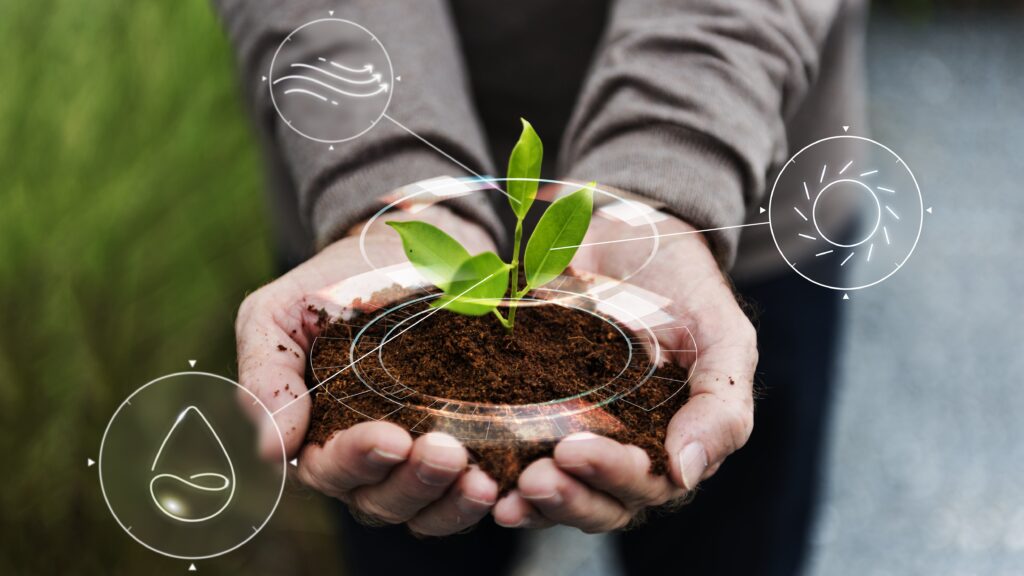Description
Unlock the secrets of sustainable waste management with our comprehensive Vermicomposting course on Anyskill.in. This course offers a step-by-step guide to transforming organic waste into high-quality compost using earthworms. Designed for enthusiasts of all levels, from homeowners wishing to nourish their gardens naturally, to entrepreneurs seeking to venture into organic compost production, this course covers all you need to know to set up and maintain a successful vermicomposting system.
Benefits of the course
- 1. Sustainable Waste Management: Learn how to convert kitchen scraps and garden waste into nutrient-rich compost using earthworms, reducing waste and minimizing environmental impact.
- 2. Enhanced Soil Fertility: Discover how vermicompost enriches the soil, improving its structure, aeration, and nutrient content, which is essential for healthy plant growth.
- 3. Cost Savings: By producing your own organic compost, you can reduce the need to buy commercial fertilizers and soil amendments, leading to significant cost savings.
- 4. Organic Gardening: Vermicompost is 100% organic, making it an ideal solution for those who practice organic gardening and prefer to avoid synthetic chemicals.
- 5. Practical Skills: Acquire hands-on experience in setting up and maintaining a vermicomposting system, enabling you to implement these practices at home or commercially.
- 6. Environmental Education: Gain a deeper understanding of ecological cycles and how vermicomposting contributes to sustainable agriculture and waste reduction.
- 7. Market Opportunities: Explore opportunities to market vermicompost as a product, providing an additional income stream for gardeners, farmers, and entrepreneurs.
- 8. Reduced Greenhouse Gas Emissions: Learn how vermicomposting can help lower greenhouse gas emissions compared to traditional composting methods, contributing to climate change mitigation.
- 9. Community Engagement: The course encourages community involvement and can inspire others to start vermicomposting, spreading awareness and increasing environmental benefits.
- 10. Flexibility and Accessibility: With online access, you can learn at your own pace and on your own schedule, making it easy to integrate this valuable skill into your life regardless of your current commitments.
- These benefits make the "Vermicomposting" course a valuable resource for anyone looking to enhance their gardening practices, contribute to environmental sustainability, and potentially develop a new revenue source.
Topics for this course
What is vermicompost Why to do vermicomposting
Introduction03:29
What Is Vermicomposting?04:56
Kechua Khaad01:14
What Is Biodegradable?01:14
Why Do We Need Compost?04:00
quiz1
types of Vermicomposting
About Worms
How Can We DO Vermicomposting? / Pre Requisites of Vermicomposting
Various Factors
For Start-Ups
Requirements
- Requirements for the Vermicomposting Course
- 1. Access to Basic Equipment: Students should have access to or be prepared to acquire basic vermicomposting equipment, such as a suitable bin, bedding materials (e.g., shredded newspaper, cardboard), and earthworms (typically red wigglers).
- 2. Internet Connectivity: Since the course is offered online, reliable internet access is necessary to view course materials, participate in webinars, and access online resources.
- 3. Space for Setup: A small space is needed to set up the vermicomposting bin, which can be indoors like a basement or garage, or outdoors in a sheltered area.
- 4. Time Commitment: The course may require a few hours per week to go through the material and additional time to set up and maintain the vermicomposting system.
- 5. Basic Gardening Tools: While not mandatory, having basic gardening tools can be helpful, especially when integrating the finished compost into gardening activities.
- Instructions for Successful Course Participation
- 1. Register Online: Sign up for the course on Anyskill.in, ensuring you provide accurate contact information for course communications.
- 2. Complete Preliminary Reading: Before the course begins, complete any recommended readings provided upon registration to familiarize yourself with the basics of vermicomposting.
- 3. Participate Actively: Engage in all interactive components of the course, including forums, live sessions, and quizzes to maximize learning and benefit from expert guidance.
- 4. Follow Along with Practical Exercises: Set up your vermicomposting bin as instructed in the tutorials to gain hands-on experience. Regularly monitor and maintain your bin according to the guidelines taught in the course.
- 5. Submit Assignments on Time: Complete and submit all assignments by the deadlines to ensure you receive feedback and can address any issues in your practice.
- 6. Ask Questions: Make use of the opportunities to interact with instructors and fellow students to clarify doubts and gain deeper insights.
- 7. Apply What You Learn: Use the knowledge and skills gained from the course to improve your vermicomposting practices and explore potential commercial opportunities.
- By following these requirements and instructions, students can fully engage with the Vermicomposting course, gaining practical skills and theoretical knowledge to successfully implement and benefit from vermicomposting.
Target Audience
- 1. Home Gardeners: Individuals who maintain home gardens and are interested in improving their soil health naturally while recycling kitchen and yard waste.
- 2. Urban Farmers: Those involved in urban agriculture who need efficient and space-saving composting methods that can be implemented in smaller, urban spaces.
- 3. Environmental Enthusiasts: People passionate about sustainability and reducing their carbon footprint who want to learn more about effective waste management practices.
- 4. School Teachers and Educators: Educators who are looking to incorporate practical environmental sciences into their curriculum through hands-on learning experiences like vermicomposting.
- 5. Small-scale Farmers: Farmers seeking organic methods to enhance soil fertility without the use of chemical fertilizers, aiming for healthier crops and reduced farming costs.
- 6. Community Leaders: Individuals who lead community centers or local environmental groups and who can use vermicomposting as a community project to promote sustainability.
- 7. Local Government Officials: Those in municipal positions responsible for waste management who are looking for innovative and cost-effective methods to reduce landfill use and promote recycling.
- 8. Hobbyists and DIY Enthusiasts: People who enjoy DIY projects and are interested in setting up and maintaining their own vermicomposting systems at home.
- 9. Entrepreneurs: Individuals looking to start a business in organic compost production or green services, benefiting from the low start-up costs and growing demand for organic products.
- 10. Agricultural Consultants and Extension Workers: Professionals advising farmers and gardeners who need comprehensive knowledge about organic composting methods to support their clients effectively.
- This course is designed to be inclusive, appealing to beginners without prior experience as well as to more knowledgeable individuals looking to deepen their expertise in sustainable waste management.
Materials included
- 1.Comprehensive Video Tutorials: Step-by-step guides on setting up and maintaining a vermicomposting system, including selecting bins, choosing and caring for worms, and harvesting compost.
- 2. Downloadable PDF Guides: Detailed documents covering all aspects of vermicomposting, such as worm species identification, feedstock preparation, and troubleshooting common issues.
- 3. Interactive Quizzes: To assess understanding and reinforce learning, quizzes at the end of each module can help consolidate the knowledge gained.
- 4. Discussion Forums Access: Enabling students to interact with peers and experts to share experiences, ask questions, and discuss challenges and successes in vermicomposting.
- 5. Assignment Sheets: Practical assignments that encourage students to apply what they've learned by starting their own small-scale vermicomposting projects.
- 6. Resource Lists: Recommendations for further reading, links to online resources, and suggestions for where to purchase supplies like worms and bins.
- 7. Expert Interviews: Sessions with experienced vermicomposters and environmental scientists to provide insights into advanced techniques and the environmental impact of composting.
- 8. Live Webinars: Scheduled sessions where instructors demonstrate vermicomposting techniques in real-time and answer questions from students.
- 9. Case Studies: Examples of successful vermicomposting operations ranging from household setups to commercial ventures, illustrating potential outcomes and business models.
- 10.Certificate of Completion: A certificate awarded upon successful completion of the course, validating the skills and knowledge gained, suitable for inclusion in resumes or display.
Your Instructor
Anyskill
Administrator
Skills to Learn, Skills to Earn Any skill is a platform to learn and acquire skills which will enable you to either opt for a job or initiate your own startup.



